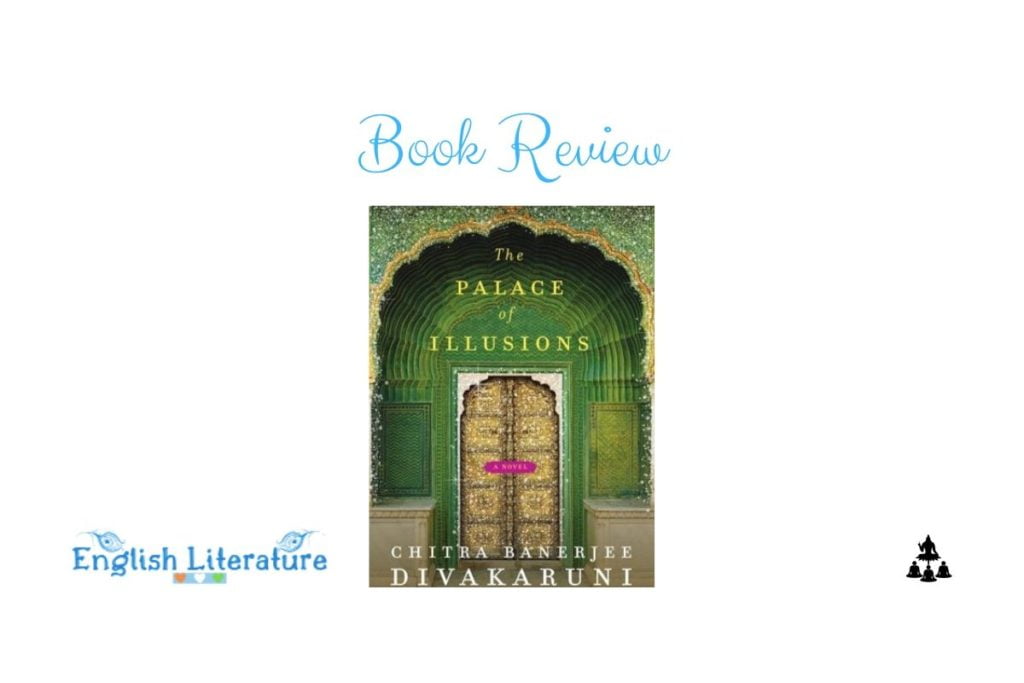Background: The Palace of Illusions is a novel based on Hindu epic Mahabharat and the historical Lunar Dynasty battle between the Kaurav and Pandav brothers. It first published in January 2008. Written by Chitra Banerjee Divakaruni, the novel is clearly using the same set of characters and the plot. However, to add the twist, the novelist has given the narrative and perspective authority to Draupadi, the lead female character in the epic. Though the intention was good and ‘heroic’, the poor handling of the narrative and also unnecessary twists in the main storyline have almost killed the vital spirit in the novel.
The Novel: Though there are many elements in the novel that make it an interesting subject for analysis and attempts of literary criticism, the novel has many ambiguities and a dull narrative with the use of over-simplified, entirely un-epic language. The grandeur of theme and lustre of narrative that are promised by the hype around the novel fade away as soon as you begin reading it. Just after a few pages, a serious reader who might be expecting it to be Zeus’s thunderbolt or Lakshman’s swift arrow loaded with his iconic anger or Krishna’s Sudarshan, things begin crumbling and a simple or below average narrative tries its best to accompany the ambitious attempt by Chitra Banerjee that seldom holds together. Beginning with the childhood of Draupadi, the novel keeps evolving around her and inside her mind. This was smoothing that I expected as well. However, once I moved ahead, there were many occasions that make the Draupadi of The Palace of Illusions a Draupadi which is far lesser a version of original Draupadi, the sharp-witted, bright-minded and godly Draupadi…
The adaptation of Mahabharata by this lady novelist is entirely confusing as the traditional readers might find many excuses too offensive to forge this novel into some feministic version of the grand epic. Though it could have been a wonderful work of fiction to know what a feminist version of Draupadi’s Mahabharata look like, the novelist has almost ruined it royally with her absurd adventures to make the readers see Draupadi giving her heart to Karna out and out, on many occasions, without any qualification for the moments. Had it seemed to the novelist falling short, she has also tattered the cloths that covered the patches of hurt self-esteem and wounds of brotherly hatred on the bodies of Pandav brothers and Kunti as well. The novel has also very weird allusions to Lord Krishna and his activities and it seems only perplexing to know that feminism for many Indian authors goes to the extent of trying anything with anyone… just anything with just anyone.
The storyline has many unnecessary expansions and contractions that further confuse the readers. Even Draupadi seems naive and confused at the hands of this novelist who could not support even a novel from the perspective of her central character by ascribing many unnecessary qualities and quantities to Draupadi’s character. The novel ended without making any impact other than annoying the reader in me!
The Critical Opinion: Do I advise reading this novel? Yes. I do advise reading this novel because it will let the readers know what an alternate version of Mahabharat would appear. Perhaps this should be the novel that inspired the authors like Anand Neelakantan to write books like Asura: Tale of the Vanquished and other novels with an alternate perspective in vision. Chitra Banerjee seems uncontrolled and never at the top of her narrative which she otherwise can manage. Perhaps the over-ambition of making things shine more than their optimum has made the novel entirely opposite of what it could be. The language has been, throughout the novel, just below standard and it never seemed like supporting the narrative or the theme. All the while, I have only been thinking – am I really reading a version of Mahabharat? I will keep my ratings at 2/5 for this novel because it failed to make any impact whatsoever upon me. It was not at all compelling and became only boring as the chapters passed. There is no excitement to know the end because most of the readers must know it already. It was all the excitement to reading something new but all I got was the same attempt at feminising things without any logic – this subjugation of fictional logic at the cost of freedom to fictionalise has done all the royal ruins of The Palace of Illusions and it becomes a fallen castle of disillusionment.
Review by a reader for English Literature Education
Book Review: The Palace of Illusions
-
Narrative
-
Adaptation Quality & Theme
-
Language & Style
-
ELE Final Impression
Summary
A novel written by Chitra Divakaruni, The Palace of Illusions is an alternate version of Mahabharat from the perspective of Draupadi. You can read the review by English Literature Education platform. The novel is flawed on many fronts and fails to strike any impact upon the readers’ psyche.

